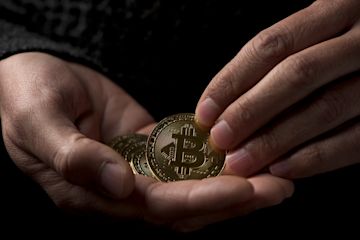
Digital Asset Custody: Are Banks the Next Custodial Gatekeepers?
Digital assets require specialized safekeeping solutions to protect against various risks while ensuring accessibility and security. Understanding these requirements is crucial for both institutions and individual investors.
Understanding Digital Asset Safekeeping Digital asset safekeeping involves secure storage of private keys that control access to cryptocurrencies and other blockchain-based assets. This includes protecting against unauthorized access while maintaining availability for legitimate transactions.
Key Risk Factors
Technical Risks
- Cyber attacks and hacking attempts
- Software vulnerabilities
- System malfunctions
- Infrastructure failures
Human Elements
- Social engineering attacks
- Internal theft
- Operational errors
- Key management mistakes
Institutional Risks
- Company bankruptcy
- Misappropriation of funds
- Regulatory non-compliance
- Operational disruptions
Banks' Emerging Role
Banks offer several advantages in digital asset custody:
- Established security infrastructure
- Regulatory compliance expertise
- Professional risk management
- Institutional-grade operations
- Client trust and reputation
Future Developments
Advanced Solutions
- Hybrid custody systems combining hot and cold storage
- Enhanced user interfaces and accessibility
- Integration with traditional banking services
- Quantum-resistant security protocols
Industry Evolution
- Increased institutional participation
- Regulatory framework development
- Technical standard improvements
- Greater service customization

Man with smartphone looks at stock price
The rapid rise of crypto ETFs provides simplified investment access to digital assets through traditional financial instruments.

Man leans against outside wall
2024 brings significant changes to the crypto landscape, with AI integration, ETF approvals, and expanded tokenization.

Hand holding golden Bitcoin coins
The safekeeping of digital assets continues to evolve, with traditional financial institutions playing an increasingly important role alongside specialized crypto custodians. This diversity in custody solutions provides greater choice and security for investors while promoting broader mainstream adoption of digital assets.
Related Articles

Complete Tax Guide: Declaring Cryptocurrencies and NFTs in Your Tax Return
